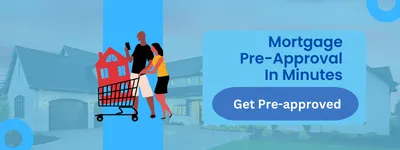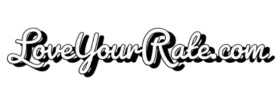
Fact Checked
What is a Conventional loan? Everything you need to know about America's most common mortgage
Our guidance draws upon our extensive expertise within the mortgage industry, and our unwavering commitment lies in assisting you in realizing your dream of homeownership.
Minimum Credit Score: 620
Down Payment Required: 3-5% minimum
Mortgage Insurance: Less than 20% down-payment requires PMI
Loan Limits: Check Maximum Baseline Loan Amounts
What is a conventional loan?
A conventional loan is a mortgage that’s available through and backed by a private sector lender. Government-insured loans, by comparison, are backed or guaranteed by a federal institution or agency. These include FHA loans, VA loans and USDA loans.
Conventional loan requirements
To secure approval for a mortgage, you must align with the lender's specific criteria, encompassing aspects such as your credit score, debt-to-income ratio, income level, and more. Notably, conventional loan prerequisites tend to be more stringent compared to those of government-backed loans.
1. Credit Score: Mortgage lenders typically mandate a minimum credit score of 620 to qualify for a conventional loan. However, it's essential to note that this is merely the baseline requirement. To access the most favorable interest rates and loan terms, it is advisable to aim for a substantially higher score, typically around 740 or above.
2. Debt-to-Income (DTI) Ratio: Your DTI ratio considers your existing monthly financial obligations, including auto loans, student loans, and credit card debts. In general, most lenders prefer the DTI ratio to remain below 45 percent, although some may grant exceptions up to 50 percent, while others may impose stricter limits at around 36 percent.
3. Down Payment: Unlike certain government-insured loans, conventional mortgages necessitate a down payment. A standard down payment is typically 20 percent of the home's purchase price. However, for fixed-rate conventional loans intended for primary residences (excluding second homes or investment properties), some lenders permit down payments as low as 3 percent or 5 percent. For instance, if you opt for a 3-percent conventional loan to purchase a $350,000 house, you would be required to make a minimum down payment of $10,500.
4. Private Mortgage Insurance (PMI): While the prospect of a minimal down payment is enticing, it does come with a trade-off: private mortgage insurance (PMI). PMI serves as protection for the lender in case of default, as you did not contribute a 20 percent down payment. Until you accumulate at least 20 percent equity in your home, either by making mortgage payments or witnessing an increase in your property's value, you'll be responsible for the additional cost of PMI.
5. Loan Size: Most conventional loans are classified as conforming loans, meaning they adhere to Federal Housing Finance Agency (FHFA) limits dictating the maximum loan amount you can obtain. These limits are contingent on the property's location. In the majority of the United States, the FHFA limit for 2023 is set at $726,200. However, specific states like Alaska and Hawaii, as well as higher-priced regions such as parts of California, have elevated limits of $1,089,300. Check Maximum Baseline Loan Amounts

Advantages of a conventional loan
Unlocking the Benefits of Conventional Loans
1. Cancellable Mortgage Insurance: One significant advantage of opting for a conventional loan is the ability to bid farewell to Private Mortgage Insurance (PMI) sooner than you might expect. Even with a modest down payment, you won't be burdened with PMI throughout the entire mortgage term. As soon as you achieve 20 percent equity in your home, you have the option to request the cancellation of PMI. What's more, your mortgage lender or servicer is required to automatically terminate PMI when your mortgage balance drops to 78 percent of the property's purchase price or reaches the midpoint of your loan's amortization schedule. This flexibility contrasts starkly with a 30-year FHA loan, where those insurance premiums remain in place for the full three decades unless you sell the property or refinance into a conventional loan.
2. Flexible Repayment Timelines: Conventional loans offer versatility when it comes to repayment timelines. While the standard options are 15-year and 30-year payback periods, some lenders extend more choices through their flexible-term or flex-term loan programs. With these offerings, you can select from a broader range of time frames, typically spanning from eight years to 29 years, allowing you to tailor your loan to your specific financial needs.
3. Expanded Financing and Property Types: Conventional loans shine in their adaptability. Unlike government-backed mortgage programs that often stipulate owner-occupancy, conventional loans extend their reach to include second homes and investment properties. Furthermore, the inclusion of jumbo loans within the conventional loan category offers highly-qualified borrowers the opportunity to secure substantial financing for their real estate endeavors.
Incorporating these advantages into your mortgage decision-making process can help you choose the most suitable loan for your unique circumstances and homeownership goals.
Drawbacks of a conventional loan
Navigating the Challenges of Conventional Loans
1. Stringent Requirements: Conventional loans come with strict prerequisites that can pose hurdles for some borrowers. The most prominent requirement is a minimum credit score of 620, although certain lenders may demand even higher scores. If your credit score needs improvement, conventional loans may not be accessible until you bolster your creditworthiness. Additionally, conventional loans tend to adhere to a 43 percent Debt-to-Income (DTI) ratio limit, which could limit your eligibility. In contrast, other loan types often offer more flexibility with the DTI ratio.
2. History Scrutiny: If you've experienced a foreclosure in your financial past, securing another conventional loan can be challenging. Conventional loans typically mandate a waiting period of seven years following a foreclosure. In contrast, government-backed loans may permit reapplication after only two to three years.
3. Private Mortgage Insurance (PMI): While PMI on conventional loans does eventually become cancellable, it remains a financial consideration if you make a down payment of less than 20 percent. This translates to higher monthly premiums and a larger financial commitment. Generally, PMI costs on conventional loans tend to be comparatively higher than the Mortgage Insurance Premium (MIP) on FHA loans, although costs can vary significantly.
These factors underscore the importance of carefully assessing your financial situation and credit history when considering a conventional loan. It's essential to weigh the benefits against the challenges to determine if this loan type aligns with your homeownership objectives.
Bottom line on conventional loans
When you envision a "mortgage," chances are you're thinking of a conventional loan. It's a popular choice among borrowers for several compelling reasons, including cost-effectiveness.
Conventional loans may appear more demanding due to their precise criteria, but obtaining one isn't as daunting as it might seem. To maximize your chances of qualifying for a conventional loan, focus on aligning your credit, income, and assets. While flexibility exists with some lenders, it's vital to acknowledge that compensating for shortcomings in one area may be necessary when pursuing a conventional loan. For instance, if your credit score falls on the lower end of the spectrum, you may need a larger down payment and a higher income.
In essence, if you can secure a down payment, demonstrate sufficient income, and maintain a qualifying credit score, you're likely well on your way to obtaining a conventional loan. It's a prudent choice that can help you keep mortgage costs under control while fulfilling your homeownership aspirations.



Branch: Canopy Mortgage - TLC Group - 13809 Research Blvd, Ste 500, Austin, TX 78750 | Office #512-598-9093 | NMLSConsumerAccess.org #: 1359687 | Equal Housing Lender -All loans subject to credit and property approval.
Consumers wishing to file a complaint against a banker or a residential mortgage loan originator should complete and send a complaint form to the Texas department of savings and mortgage lending, 2601 North Lamar, suite 201, Austin, Texas 78705. Complaint forms and instructions may be obtained from the department’s website at www.sml.texas.gov. A toll-free consumer hotline is available at 1-877-276-5550. The department maintains a recovery fund to make payments of certain actual out of pocket damages sustained by borrowers caused by acts of licensed residential mortgage loan originators. A written application for reimbursement from the recovery fund must be filed with and investigated by the department prior to the payment of a claim. For more information about the recovery fund, please consult the department’s website at www.sml.texas.gov. State Licenses page, Privacy Policy, and Terms of Use

Facebook
Instagram
LinkedIn
Youtube
TikTok